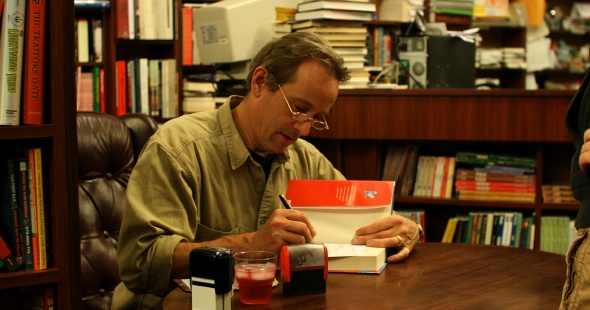Rating: 6.5/10
Review:
After tackling the first big passion of India - cricket - in her hilarious first book The Zoya Factor, Anuja Chauhan bases her second book on India's second biggest passion - politics. Battle for Bittora is the story of Jinni (Sarojini) Pande and Zain Altaf Khan, friends, childhood sweethearts, and now, Lok Sabha candidates fighting their first election. Against each other.
If Patrick French would start classifying fictional Indian characters, Jinni would be a hyper-hereditary MP (HHMP) whose grandmother is the incorrigible Pushpa Pande, three time MP from 'Pavit Pradesh' and the scion Zain would be slotted as 'Royal Family'.
The premise is definitely interesting - this is a tale of love and the Lok Sabha. Yes, you read that right. It's easy to draw parallels with Meg Cabot's Princess Diaries where Mia Thermopolis must become Princess of Genovia after her exasperating Grandmere forces her to. But the theme, a light, funny take on Indian politics, is still promising.
Politician Margaret Alva's daughter-in-law Anuja Chauhan has that uncanny ability to make her reader grin, smile widely and even, laugh out loud. It doesn't take a genius to figure out the 'Grand Old' Pragati Party with the Indian tricolour on its flag and the IJP (Indian Janata Party) with the saffron flag and marigold symbol references. Indeed that is the strong point of the book - Chauhan's exquisite popular culture and political culture references that are laden with wit. Nobody is spared - from Rahul Mahajan to Rahul Gandhi, there are enough references to make you chuckle. There are wry remarks about Fab India sarees, white kurtas, the penultimate decision - to ignore or accept a Facebook friend request. Sample some of them:
'Because if my life really had turned into a bad Madhur Bhandarkar film (Called Politics, you know, like Corporate and Fashion and Jail), I had to play this smartly'
'Whichever way you look at it, it can't be denied that, with about three and a half exceptions, Indian pollies are an unbeautiful lot'
'Bitiya, marrying into a minority community is a good idea,' Rocket Singh volunteered. 'It will increase your vote bank and show ki you are a progressive. But be practical, please choose a large, healthy minority! There's no such thing as a Parsi vote bank - they're practically extinct.'
'But they're rich,' interrupted Our Pappu, with a worldly wise air..'
But all the charm, sarcasm and fun falls flat because of mundane, repetitive scenes. This is a problem that I had with The Zoya Factor too. There are several scenes that add little to the story and serve only to dampen its pace and annoy the reader. Also, Chauhan's heroines tend to be similar - Jinni from Battle for Bittora and Zoya from The Zoya Factor - are both chirpy, pretty women who are prone to massive crushes.
Zain Altaf Khan is a typical charming, suave, gorgeous hero, the kind women love to read about and the kind a Bollywood hero would look forward to playing. This is a book that is more than 400 pages long and I think crisp editing would have made it better. Nobody is expecting Chauhan to keep us guessing at every stretch, but predictability can be forgiven only when the book captivates you.
I much prefer The Zoya Factor to Battle for Bittora, despite the fact that I enjoy political fiction more than sport-related fiction. However, I still look forward to reading Chauhan's upcoming books because her wonderful sense of humour (Here's a salute for Shaadi, Khaadi aur Azaadi!) shines through her books.
I wouldn't recommend this book to those who aren't acquainted with India, because the book is at its best with its in-jokes and the Hindi accented words will be tough to understand. But to all others, this is chick lit that is worth a read. It won't be extraordinary, but will almost certainly brighten a dull day.





